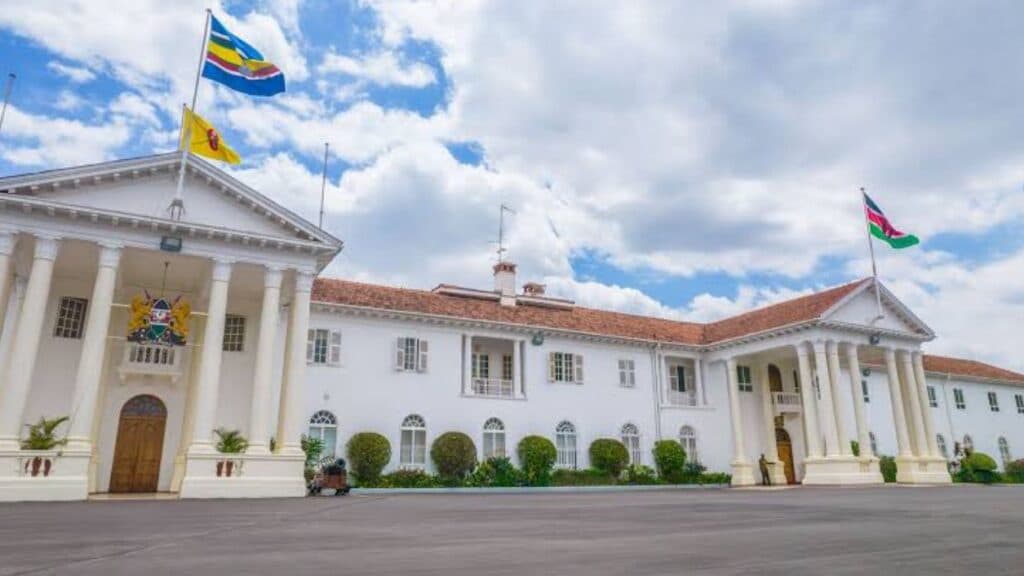We're loading the full news article for you. This includes the article content, images, author information, and related articles.
Controller of Budget report reveals State House, Deputy President's, and Prime Cabinet Secretary's offices significantly overspent their first-quarter allocations, raising serious questions about fiscal discipline amid government austerity pledges.

NAIROBI, KENYA - The Executive Office of the President, including State House, the Deputy President's Office, and the Office of the Prime Cabinet Secretary, collectively overspent their budgets by Sh4.32 billion in the first quarter of the 2025/2026 financial year, a new report by the Controller of Budget has revealed. The spending breach, occurring between Monday, July 1, 2025, and Monday, September 30, 2025, starkly contrasts with the government's repeated commitments to fiscal consolidation and austerity measures.
According to the National Government Budget Implementation Review Report, released by Controller of Budget Dr. Margaret Nyakang'o, State House recorded the most significant deviation. It spent Sh4.32 billion on recurrent expenditure against a quarterly target of Sh1.92 billion, representing a 125% over-expenditure. This sharp increase in spending has raised concerns over financial controls within the highest office in the land, especially as the nation grapples with a projected budget deficit of Sh901 billion for the current fiscal year.
The Office of the Deputy President, Kithure Kindiki, also significantly surpassed its budgetary allocation. The office spent Sh1.11 billion against a target of Sh743 million for the quarter. Similarly, the Office of the Prime Cabinet Secretary incurred expenditures that were substantially higher than planned, contributing to the overall Sh4.32 billion overspend by the top executive offices.
The trend of exceeding approved budgets was not limited to the presidency. The report highlights that several other key government departments, particularly within the security sector, also breached their spending ceilings. The National Police Service, the Department of Internal Security and National Administration, and the National Intelligence Service collectively overshot their allocations by nearly Sh17 billion.
Specifically, the National Police Service spent Sh36.94 billion against a target of Sh31.35 billion, an overspend of Sh5.59 billion. The Internal Security department spent Sh13.99 billion, far exceeding its Sh7.97 billion ceiling, while the National Intelligence Service used Sh17.96 billion against an allocation of Sh12.86 billion.
This pattern of expenditure raises critical questions for Kenyan taxpayers, as overspending often necessitates increased borrowing, further deepening the country's public debt. The Treasury has already indicated that such breaches force the exchequer to borrow more to balance its books.
While Article 223 of the Constitution allows state offices to spend up to 10% above their approved allocations in unforeseen or emergency situations, the scale of the over-expenditure reported in the first quarter suggests a more systemic issue. The Public Finance Management Act requires the Treasury to table a mini-budget in Parliament within two months if funds are withdrawn from the Consolidated Fund without prior approval.
The consistent overspending by key government offices, especially in a period marked by a Sh90 billion revenue shortfall in the first quarter, points to significant fiscal pressure. The Treasury has warned that unless revenue collection stabilizes, the government may face a deeper financing gap, potentially leading to increased domestic borrowing and tighter fiscal conditions.
The Controller of Budget's report serves as a critical accountability tool, providing Parliament and the public with insight into the government's adherence to its own financial plans. The findings from this first quarter review will likely intensify the debate on public debt, fiscal prudence, and the need for stringent enforcement of budgetary controls across all levels of government as the financial year progresses.
Keep the conversation in one place—threads here stay linked to the story and in the forums.
Sign in to start a discussion
Start a conversation about this story and keep it linked here.
Other hot threads
E-sports and Gaming Community in Kenya
Active 9 months ago
The Role of Technology in Modern Agriculture (AgriTech)
Active 9 months ago
Popular Recreational Activities Across Counties
Active 9 months ago
Investing in Youth Sports Development Programs
Active 9 months ago